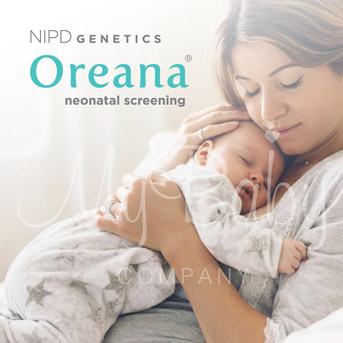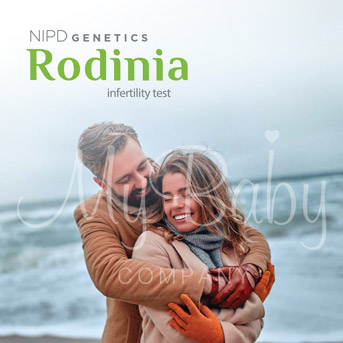Evartia – Metabolic Screening Test
£395.00
Evartia is a new genetic test that detects genetic mutations (changes) that cause inherited metabolic diseases in people. People with inherited metabolic diseases can have a range of symptoms, with variable expressivity and age of onset. Symptoms can manifest shortly after birth or at infancy, childhood, adolescence or adulthood. Symptoms can also occur suddenly due to specific foods or medications, dehydration, illnesses or other factors. With Evartia, if you have an inherited metabolic disorder, detecting and managing it early can prevent or reduce symptoms, avoid chronic health consequences and improve your quality of life.
Inherited metabolic diseases may be individually rare, but collectively they are numerous. As they have variable symptoms, detecting an inherited metabolic disorder in an individual is not always straightforward.
- Pain free sample collection using a Buccal cheek swab – can be carried out in the comfort of your own home
- Results within 21 – 28 working days from sample arriving in the laboratory
If using a mobile device – please continue scrolling to see full product information
Description
WHAT IS Evartia?
Evartia is a new genetic test that detects genetic mutations (changes) that cause inherited metabolic diseases in people. People with inherited metabolic diseases can have a range of symptoms, with variable expressivity and age of onset. Symptoms can manifest shortly after birth or at infancy, childhood, adolescence or adulthood. Symptoms can also occur suddenly due to specific foods or medications, dehydration, illnesses or other factors. With Evartia, if you have an inherited metabolic disorder, detecting and managing it early can prevent or reduce symptoms, avoid chronic health consequences and improve your quality of life.
Inherited metabolic diseases may be individually rare, but collectively they are numerous. As they have variable symptoms, detecting an inherited metabolic disorder in an individual is not always straightforward.
The usual pathway of identifying a metabolic disease involves lengthy and complicated biochemical or enzymatic tests. This may include testing a variety of specimen types, such as blood, urine, sweat, and even undergoing invasive brain or muscle tissue biopsy. Such tests rely on reference intervals which may not always be suitable for the individual’s age, gender or current state of health – whether they are in the middle of a metabolic episode or not. Often, they also require a genetic test to confirm the mutation.
With Evartia, you are one simple, painless and reliable test away from taking informed and accurate decisions on the best clinical management for you
WHAT ARE INHERITED METABOLIC DISEASES?
Metabolic pathways have pivotal roles in keeping our bodies healthy. Their many actions include producing energy and taking the necessary nutrients from the foods we consume. When a mutation (genetic change) occurs in a metabolic pathway, it can lead to either accumulation of toxic substances in our body, or insufficient production of required products that keep us healthy and functional. As a result, metabolic diseases can affect our health and development, and cause acute and chronic complications.
Symptoms of inherited metabolic diseases usually appear shortly after birth. However, depending on the mutation, the metabolic pathway involved and the severity of the condition, some people with inherited metabolic diseases can develop symptoms in early or late adulthood. There is great variability in the symptoms and the severity of symptoms caused by metabolic diseases. Importantly, adults and children with the same metabolic disorder may have different symptoms. In addition, the misconception that metabolic diseases only affect babies and young children, leaves many adults suffering from metabolic diseases unrecognized and undetected.
Symptoms of a Metabolic disease include:
- Vomiting
- Abdominal Pain
- Lethargy
- Psychological or Neurological problems
- Weight loss
- Seizures
Additional symptoms may include vision disturbances, impaired kidney function, heart problems, abnormal movements, behavioural or learning issues, distinctive facial features and recurrent infections.
WHAT DOES Evartia TEST FOR?
Evartia metabolic test covers the major categories of inherited metabolic diseases and is offered as a single, detailed panel of 223 genes involved in metabolic pathways.
Evartia tests for autosomal recessive, autosomal dominant and X-linked disorders. These may be inherited from carrier parents, who are unaware of their carrier status, to their children, or without a known or prior family history of that disorder.
Additionally, this means that if you are affected by a metabolic disease, some of your family members may also benefit from metabolic testing. Early detection has a higher potential to reduce symptoms or minimize their severity, improving the quality of life of the person with the metabolic disease.
HOW does Evartia help me?
Evartia can help you identify:
- What disease you have
- What is your prognosis (how the disease will progress based on the specific mutation you have)
- What is the best treatment and clinical management for you
- What complications you should be aware of
- How it will affect your life
- Who in your family should be tested
- Who can help you (specialised doctors, dieticians, support groups)
WHO IS Evartia FOR?
- Individuals with common symptoms of a metabolic disease
- Individuals with a spectrum of overlapping symptoms that vary in age of onset and severity
- Individuals with neurological symptoms that haven’t improved with routine therapies
- Individuals with a family history of a metabolic disease
- Pain free sample collection using a Buccal cheek swab – can be carried out in the comfort of your own home
- Results within 21 – 28 working days from sample arriving in the laboratory
Results should always be discussed with your Healthcare Professional
Please click here to see Brochure
Please click here to see Metabolic Panel Gene List





